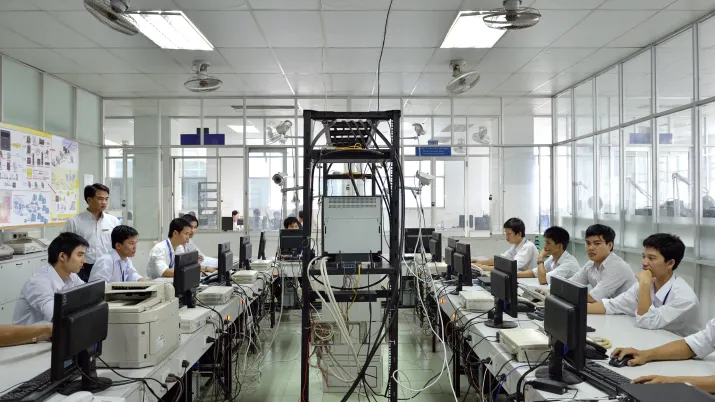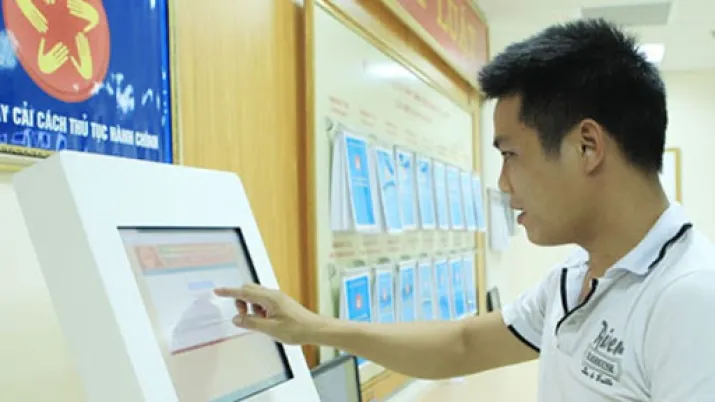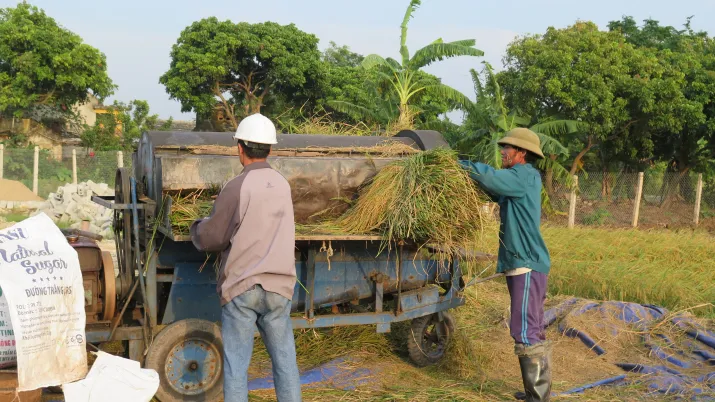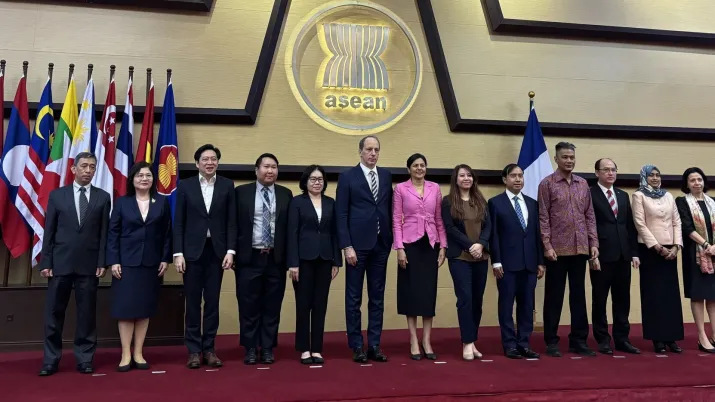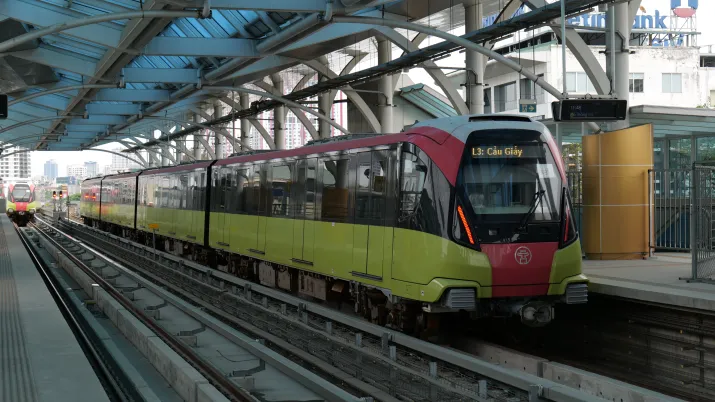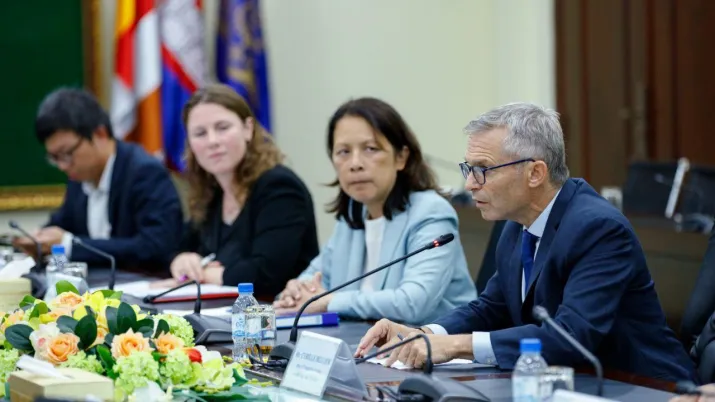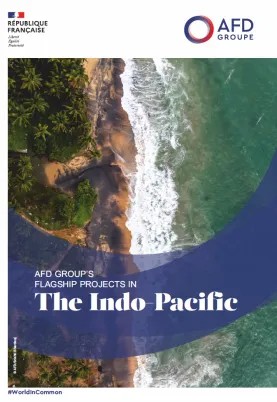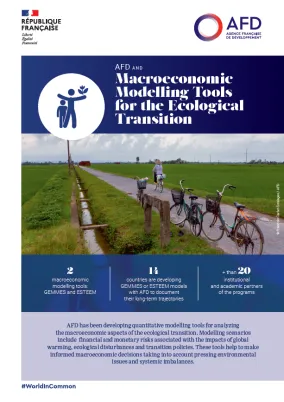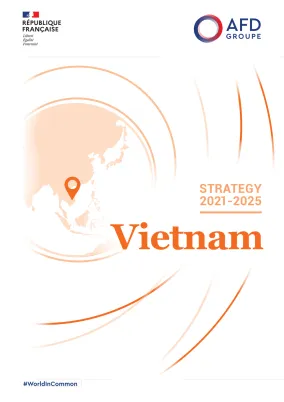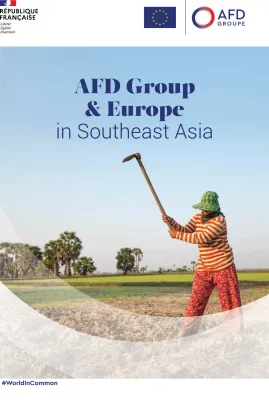Share the page
Viet Nam
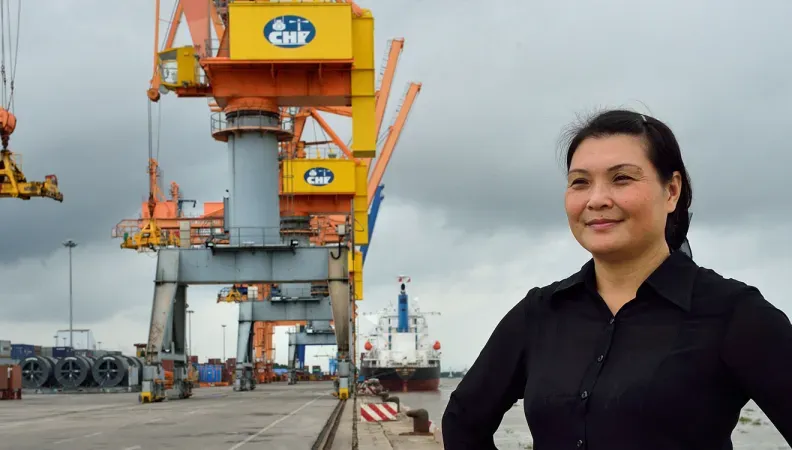
From the "Doi Moi" reforms of the 1990s to the "Ky Nguyen Moi" era in 2025, Viet Nam has experienced rapid development, and aims to continue on this path to become a high-income country by 2045. At COP26, it committed to achieving carbon neutrality by 2050. To reach that goal, the country is investing in resilient, low-carbon energy and transport infrastructure to support sustainable growth and a just ecological transition.
Context
Present in the country since 1994, AFD Group celebrated its 30th anniversary in 2024 in partnership with Viet Nam. Over the past 30 years, the Group has invested more than €3 billion in nearly 110 projects benefiting the government, most provinces, NGOs, research centers, banks, and state-owned enterprises. Since 2015, following COP21 and the Paris Agreement, AFD has operated under a “100% climate” mandate.
Proparco, the Group’s private sector arm, has mobilized over €500 million in financing since the early 2000s to strengthen private sector contributions to the Sustainable Development Goals (SDGs). Proparco has primarily invested in the energy, industry, and banking sectors through direct or indirect loans, equity investments, and guarantees.
Expertise France, the Group’s technical cooperation agency, is active in Viet Nam through the implementation of regional and bilateral projects funded by the European Union, the French Ministry for Europe and Foreign Affairs, and AFD.
AFD’s Viet Nam office reports to the Southeast Asia Regional Office.
Our approach
AFD and Vietnam: Supporting the implementation of the Paris Agreement
AFD’s country strategy for Viet Nam (2021–2025) aims to support the country’s path toward resilience and net-zero emissions by 2050. It is built around three main pillars:
- Supporting a low-carbon energy transition to mitigate the effects of climate change.
- Guiding territories toward an ecological and resilient trajectory that promotes adaptation.
- Contributing to sectoral dialogue through expertise, knowledge-sharing, and research.
AFD provides concessional sovereign and non-sovereign loans, mobilizes delegated European Union funding blended with its financing, and offers grants for studies, decentralized cooperation, and civil society organizations.
Between 2021 and 2025, AFD has committed €713 million to 15 new projects aligned with the Paris Agreement. As part of the EU’s Global Gateway strategy, AFD has strengthened its Team Europe partnership, managing €94 million in EU grants to support project preparation and implementation facilities in the energy sector (ETEF), transport (VTD), and climate change adaptation (WARM).
Viet Nam’s strong economic growth is expected to drive a 12–14% annual increase in electricity demand through 2050. The country remains one of the world’s largest coal consumers, with 40% of its electricity still generated from fossil fuels. The revised Power Development Plan 8 (PDP8), expected in 2025, targets a 67% share of electricity production from renewable sources by 2050.
As part of the Just Energy Transition Partnership (JETP), France committed in 2022 to contribute €500 million through AFD to support the energy transition. AFD is backing the expansion of renewable energy, grid modernization to accommodate new capacity, and energy efficiency efforts.
This includes financing, either directly through Vietnam Electricity – EVN or via green credit lines to public banks, the development of hydropower facilities (Ialy, 360 MW; Hoa Binh, 480 MW) as well as solar and wind farms. AFD also supports the strengthening of the national transmission grid with NPT, with a focus on integrating renewable energy.
Between 2021 and 2025, five non-sovereign projects totaling €322 million have been approved, including two with EVN, one with NPT, and two green credit lines with BIDV and Agribank.
As part of the new Ky Nguyen Moi era, Viet Nam aims to expand its major connectivity infrastructure. AFD is supporting the development of low-carbon passenger and freight transport through investment in rail, inland waterways, and sustainable urban mobility. This support may take the form of sovereign financing – either directly to the central government or passed on to provinces – or non-sovereign financing.
AFD is working with the city of Hanoi to finance Metro Line 3, whose elevated section was inaugurated in 2024, and is preparing the line’s extension with a €10 million grant from the European Union. In parallel, AFD is assisting Hanoi on intermodality, facilitating peer-to-peer exchanges with Île-de-France Mobilités as part of the decentralized cooperation between the Île-de-France Region and the city of Hanoi.
Following a memorandum of understanding signed with the Ministry of Construction in 2024, AFD has been asked to support Viet Nam in electrifying its railway network and converting rolling stock to clean energy. Since 2025, SNCF has been providing technical assistance to strengthen the railway ecosystem’s capacity in high-speed rail and line electrification.
Viet Nam is highly exposed to the impacts of climate change. With 3,200 km of low-lying coastline, it faces some of the world’s highest levels of vulnerability to coastal erosion and flooding. The Mekong Delta, which produces half of the country’s rice, 65% of aquaculture, and 70% of its fruit, could see nearly 50% of its land submerged by the end of the century if coastal subsidence is not addressed.
AFD is supporting 15 provinces and cities across Viet Nam in adapting to climate change through projects targeting flood control, saline intrusion, and coastal erosion, as well as integrated water resource management. These efforts also promote sustainable and resilient urban development.
Between 2021 and 2025, AFD will have financed 10 new projects for the benefit of provincial authorities, totaling €300 million in loans. All projects are supported by international technical assistance, co-financed by the European Union through the WARM Facility managed by AFD.
In parallel with its financing operations, AFD supports Viet Nam’s climate ambitions through public policy dialogue by mobilizing French and European expertise, organizing study tours and peer-to-peer exchanges, and producing knowledge. Between 2021 and 2025, several programs have been implemented, including GEMMES-2.
GEMMES-2 (2023–2026), carried out in partnership with the Department of Climate Change and the Ministry of Foreign Affairs, builds on Phase 1 (2019–2022, implemented by IRD), which modeled the socio-economic impacts of climate change and proposed adaptation strategies. Phase 2 aims to improve climate projections, model energy transition scenarios toward carbon neutrality by 2050, and assess the social impacts on employment and natural resources.
Sectoral dialogue includes support for greening public finance (carbon markets, green bonds, environmental taxation), promoting sustainable investment in the banking sector, and assisting the Ministries of Construction and Agriculture in resilient urban planning and water governance. This dialogue will be further strengthened in the areas of energy, transport, and climate adaptation.
In the field
Below, find the country's projects, news, publications, and contact details in one click.
Projects
News & Press Releases
Publications & Media
Key figures
-
3 billion euros committed by the Group over 30 years
-
110 projects financed over 30 years
-
1 in 3 people in Viet Nam benefit from our projects

